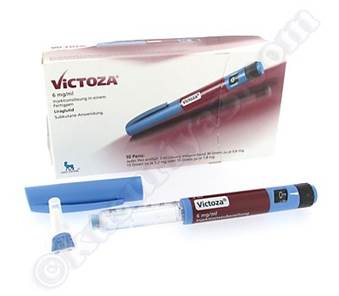
 Treatment with liraglutide improves glycemic control with the added benefit of weight loss. Many believe liraglutide-induced weight loss may be associated with increased plasma natriuretic peptide concentrations. In animal models, natriuretic peptides have been associated with lipolysis, weight loss and adipocyte browning.
Treatment with liraglutide improves glycemic control with the added benefit of weight loss. Many believe liraglutide-induced weight loss may be associated with increased plasma natriuretic peptide concentrations. In animal models, natriuretic peptides have been associated with lipolysis, weight loss and adipocyte browning.
 In a recent, prospective, 12-week observational study, researchers hypothesized that liraglutide-induced weight loss was associated with increased plasma natriuretic peptide concentrations. Patients included in this study were obese, type 2 diabetics having a glycosylated hemoglobin A1c (HbA1c) ranging from 7 to 10, and being stable on a maximal dose of metformin, or combined with either insulin, or any other oral anti-diabetes drugs.
In a recent, prospective, 12-week observational study, researchers hypothesized that liraglutide-induced weight loss was associated with increased plasma natriuretic peptide concentrations. Patients included in this study were obese, type 2 diabetics having a glycosylated hemoglobin A1c (HbA1c) ranging from 7 to 10, and being stable on a maximal dose of metformin, or combined with either insulin, or any other oral anti-diabetes drugs.
 Using dual-energy X-ray absorptiometry and computerized tomography, researchers evaluated body composition, abdominal visceral adipose tissue areas and subcutaneous adipose tissue areas, pre- and post-treatment. Concentrations of plasma atrial natriuretic peptides (ANP) and B-type ventricular natriuretic peptides (BNP) were quantitatively assessed.
Using dual-energy X-ray absorptiometry and computerized tomography, researchers evaluated body composition, abdominal visceral adipose tissue areas and subcutaneous adipose tissue areas, pre- and post-treatment. Concentrations of plasma atrial natriuretic peptides (ANP) and B-type ventricular natriuretic peptides (BNP) were quantitatively assessed.
 Significant associations were found between increases in both plasma ANP and BNP levels and changes in body weight, indicating increases in plasma NPs may play a role in explaining how liraglutide induces sustained weight loss.
Significant associations were found between increases in both plasma ANP and BNP levels and changes in body weight, indicating increases in plasma NPs may play a role in explaining how liraglutide induces sustained weight loss.
